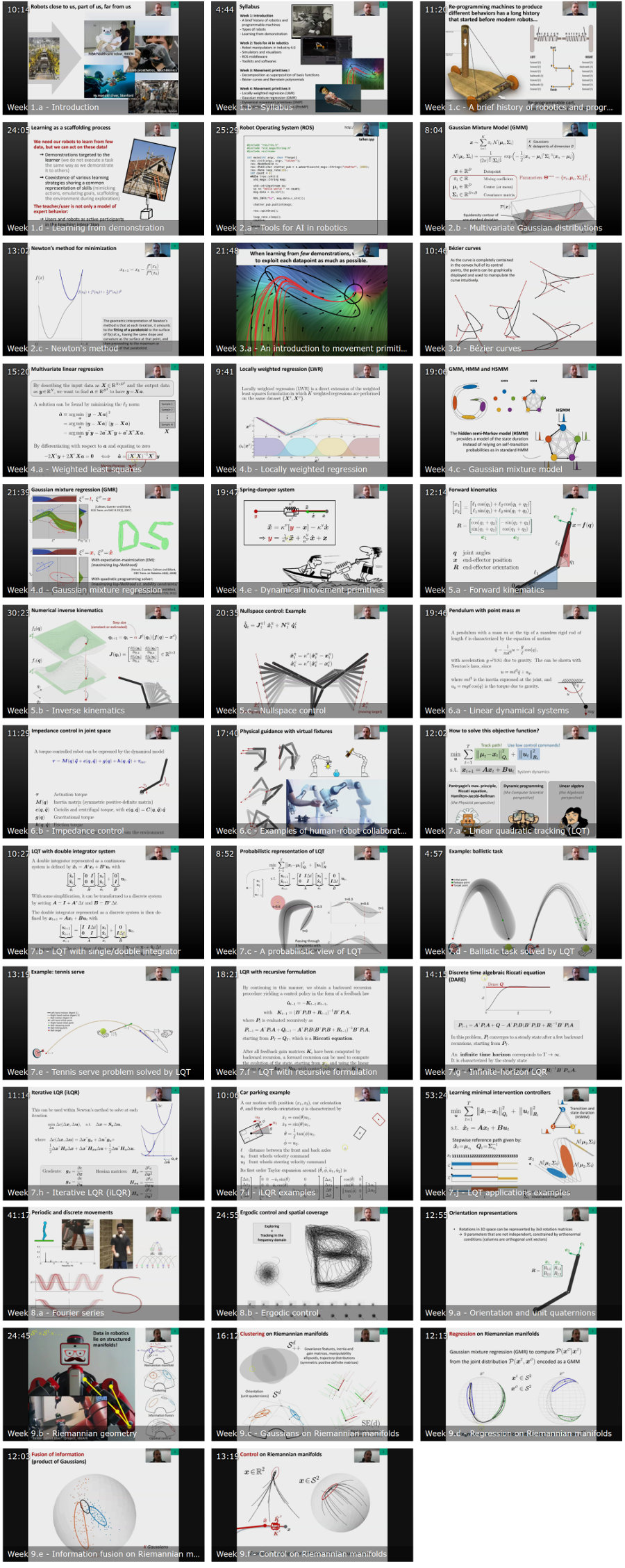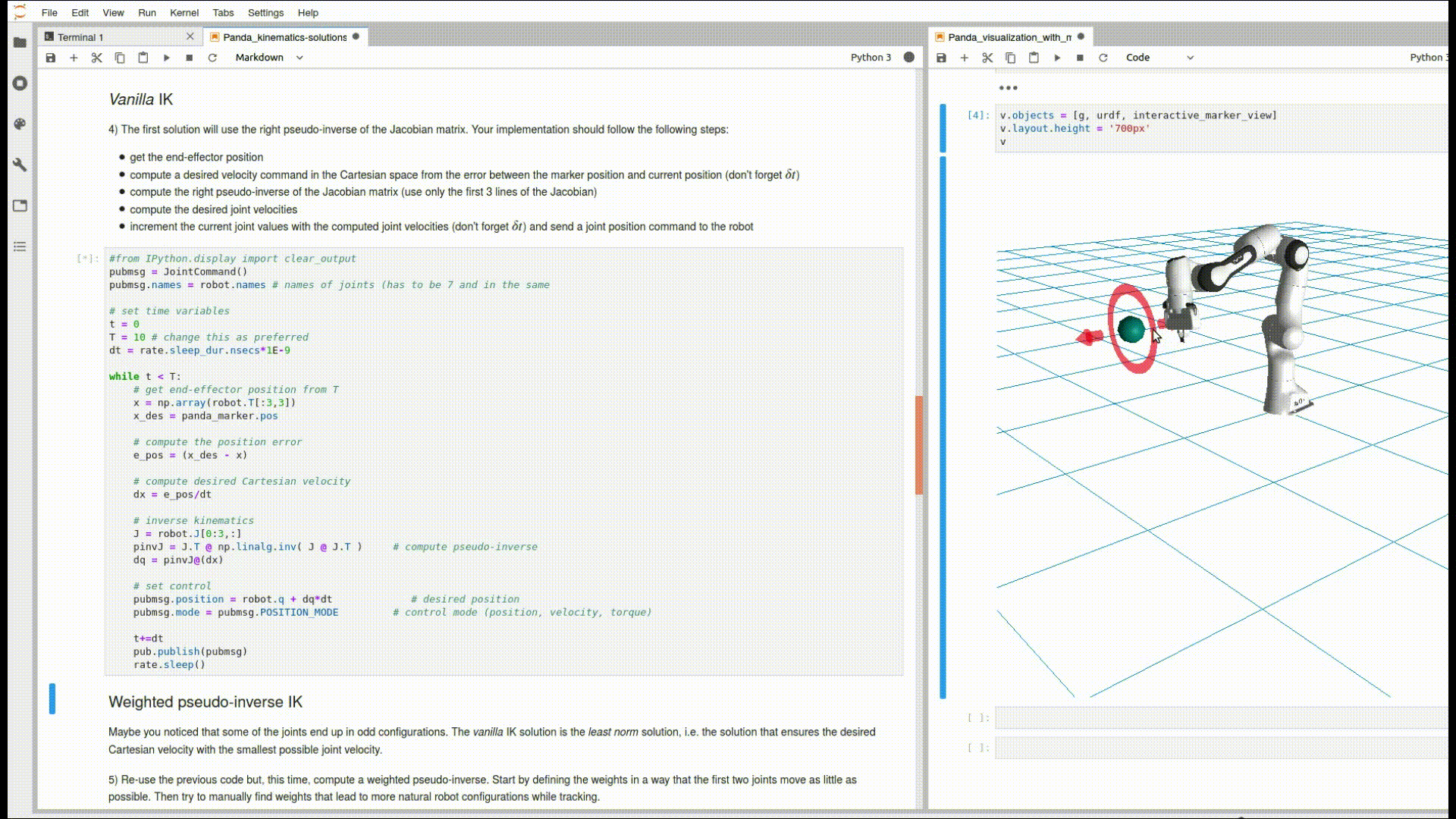Engineering Master on Applied Artificial Intelligence
The Robotics course (Module A04) is part of for the Engineering Master program on Applied Artificial Intelligence, in partnership with the Swiss Distance University Institute.
As part of an AI Master programme, our Robotics course provides a unique perspective by focusing on AI-centered, state-of-the-art topics such as movement primitives, optimal control and manifolds, while adopting a modern and practical view on classical approaches related to kinematics and dynamics.

Syllabus
- Why is AI for robotics hard?
- A brief history of robotics and autonomous machines
- Learning from demonstration (observational learning, kinesthetic teaching, correspondence problems)
- Simulators and visualizers
- ROS middleware
- Toolkits and softwares
- Movements as superposition of basis functions
- Bézier curves and Bernstein polynomials
- Locally weighted regression
- Gaussian mixture regression
- Dynamical movement primitives
- Forward kinematics
- Inverse kinematics
- Task prioritization and nullspace control
- Linear dynamical systems
- Gravity compensation
- Impedance control
- Linear quadratic regulation (LQR)
- Linear quadratic tracking (LQT)
- Iterative LQR (iLQR)
- Exploration behaviors
- Decomposition as Fourier series
- Spatial coverage problems
- Representations of orientation data
- Quaternions
- Riemannian geometry
Labs
The robotics labs for this course are prepared and led by Dr João Silvério. These labs do not require any installation: only a web browser is required! This has been achieved through jupyter-ros, created by Wolf Vollprecht from QuantStack, which allows us to embed ROS interfaces in jupyter notebooks.
